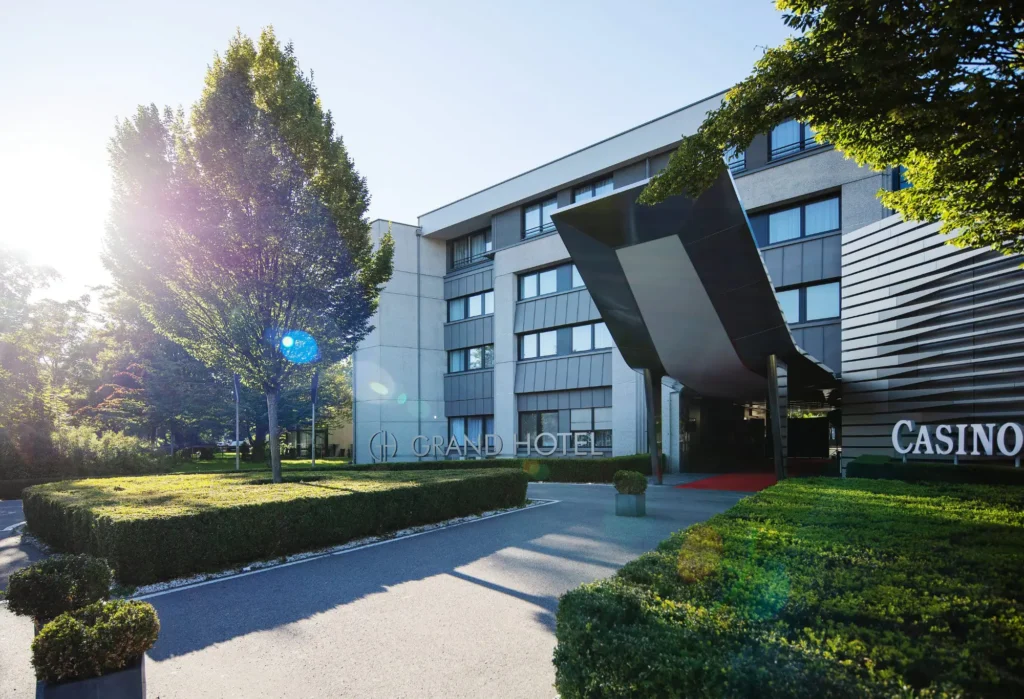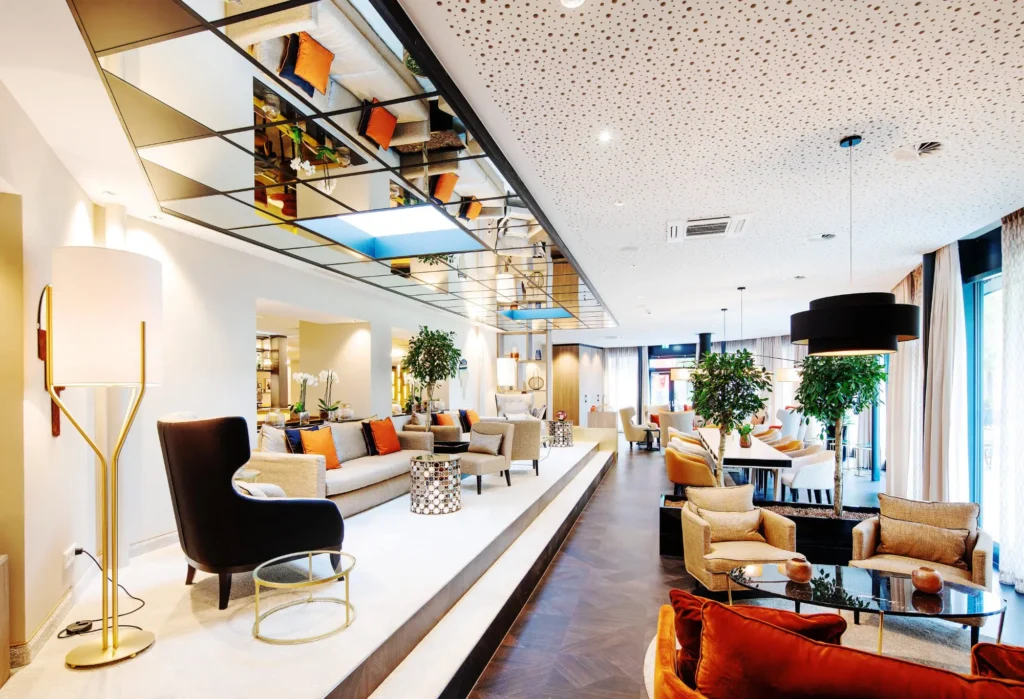With great pleasure, we bring you another inspiring interview from the world of Hospitality. We would like to thank Mr. Filip Vlach for taking the time to share his perspective on hotel management, his professional journey, and the international experience that led him to shape the hospitality scene in Austria and Germany.
His track record includes the successful leadership of the iconic Grand Hotel Bregenz, numerous complex renovations, and strategic brand repositionings. His approach blends a strong focus on quality, effective team management, and the ability to adapt to a constantly evolving market.
1. Let’s start with the present – what would you consider your greatest achievement as Managing Director for Austria and Germany at Grape Hospitality?
I believe my greatest achievement in this role has been the stabilization and successful restart of our hotel portfolio during the extremely challenging period following the pandemic. In the context of global uncertainty, high inflation, and skyrocketing energy prices, we not only managed to restore trust among our guests and partners but also strengthened our team’s performance—ensuring they were motivated, flexible, and ready to face new challenges. The result has been solid financial performance and increased satisfaction among both guests and staff, which I see as the most important measure of success.
2. Throughout your career, you’ve been involved in several full hotel renovations and rebrandings. What has been the most difficult aspect, and what brings you the greatest satisfaction?
Complete renovations and rebrandings come with many challenges—from tight deadlines and the coordination of operations with construction, to effective communication with staff and guests. One has to carefully weigh whether it’s better to keep the hotel open or partially or fully close it for a period, which may allow a faster reopening with a new standard or brand and an earlier return to profitability. The hardest part is often maintaining team morale during reduced operations or closures, making sure employees stay on board and remain proud of the project. On the other hand, the moment of reopening brings me the greatest joy—seeing happy and excited guests and a proud team that contributed to the final result is incredibly rewarding.
3. You moved from the position of General Manager at Grand Hotel Bregenz to a higher regional role. What are the key differences between managing a single property and overseeing two national markets?
Managing a single hotel is primarily about daily contact with guests and the team, attention to operational details, and direct control over service quality. A regional role is much more strategic—it involves setting standards, motivating and supporting multiple teams, monitoring trends in individual markets, and seeking synergies between properties. It requires a broader perspective, more delegation, and the ability to inspire people across various roles. I must admit that, as someone who naturally gravitates toward operations, I sometimes miss that direct guest interaction—because bringing joy to people is what I truly love. It may sound like a cliché, but the chance to create positive guest experiences is what I find most beautiful about our industry.

4. Your professional journey has been closely linked with Accor brands. In your view, what does Accor do differently or better than other players in the market?
As Grape Hospitality, we are Accor’s largest franchise partner in Europe. Accor has a long-standing tradition in our region and is a clear market leader in countries like France. Brands such as Ibis or Novotel have become household names—many guests don’t even realize they’re part of the Accor portfolio. I believe the group’s main strength lies in the stability and heritage of its brands, which have built trust and guest loyalty over decades.
5. Based on your experience, how do you see the current job market in Austria and Germany, particularly in the hospitality sector? Are positions still in demand, or is there a lack of qualified candidates?
Thanks to their strong economies and above-average wages, Austria and Germany continue to attract workers from lower-income countries, especially for entry-level roles in service and housekeeping. However, at higher managerial levels, the open European job market has largely equalized salary differences.
That said, like in virtually all European countries, Austria and Germany are experiencing a shortage of qualified hospitality professionals—especially after the pandemic, which saw many people leave the industry for other sectors. While roles remain attractive and there is interest, the necessary experience and motivation to return to this demanding environment are often lacking.
At the same time, we are seeing a generational shift. Older employees value stability and security, while younger generations are drawn to variety, freedom, and openness. This has required us to rethink how we attract people to our field. Did you know the average attention span for watching a single Instagram reel is just 8 seconds? That’s about how much time we have today to grab a young person’s attention and convince them to give hospitality a chance.
Looking ahead, I believe hotels need to become even better employers—offering meaningful work, an open dialogue, a modern approach, flexibility, and a clear path for professional growth.
Is it still possible to succeed in hospitality in Austria or Germany without speaking German? Or is language still a basic requirement for most roles?
Without knowledge of German, one can find opportunities mainly in positions focused on international guests, or in certain management roles where organizational, leadership, and project skills are more critical. However, for most front-office roles and direct guest interactions, German remains essential. That said, with the rapid development of artificial intelligence, this could very well change in the future—who knows…

6. You’ve worked in Prague, Bregenz, and Vienna during your career. How do these markets differ—in terms of guests, teams, or the working environment?
I’m often asked about the difference between Prague and Vienna, and I like to jokingly say that Prague is a royal city, while Vienna is imperial. Both destinations are highly international, with a strong share of tourists who value good value for money and historical authenticity. Vienna, in addition, benefits from strong demand in the MICE segment.
In both cities, we observe relatively high staff turnover. Vienna has the advantage of higher entry-level wages and benefits from its proximity to Hungary, which provides a steady stream of applicants for whom working in Austria is highly attractive.
Bregenz, by contrast, is a smaller, more seasonal destination, closely tied to cultural events such as the famous Bregenz Festival. It’s also quite difficult to find local staff there, especially due to the nearby Swiss border, where wage conditions are significantly better and hard to compete with.
7. In your opinion, what makes a hotel manager a true leader? Do you follow any guiding principles in leading your teams?
From my experience, the higher one climbs the career ladder, the more the job becomes about soft skills and the ability to work with people. A true leader in hospitality inspires the team, shows empathy, communicates a clear vision, and leads by example. It’s not just about the numbers—it’s about building relationships—with guests, with the team, and with business partners.
Personally, I follow the principles of transparent communication, mutual respect, and a commitment to developing each team member’s potential. Helping people grow brings me great fulfillment, and I’m proud of the many internal career success stories across my region.
8. How have guest expectations changed over the past 10 years? What do hotels need to offer today to remain competitive?
Today’s guests have much higher expectations for personalization and sustainability. They expect technology that simplifies their stay, but also want a human touch and authenticity. To stay competitive, hotels must be flexible, blend digital services with personal interaction, and act responsibly towards the environment.
9. Finally, on a more personal note: is there a hotel where, as a guest—not a manager—you truly felt relaxed and taken care of?
I have fond memories of spending a few days at Chateau Mcely a few years ago. Of course, the property is stunning, but what truly stood out was the level of service and guest care. My wife and I felt absolutely amazing thanks to the staff. If perfect service were taught somewhere, this hotel could serve as a literal university.
On behalf of Dream Job Agency, Mrs. Pavla Hodinková would like to sincerely thank Mr. Filip Vlach for this insightful and inspiring conversation. We truly appreciate his time and openness — and we wish him continued success in his international hospitality career.
👉 If you enjoyed this interview, don’t miss our other conversations with professionals and leaders from the world of hospitality and gastronomy. Explore more stories here.


